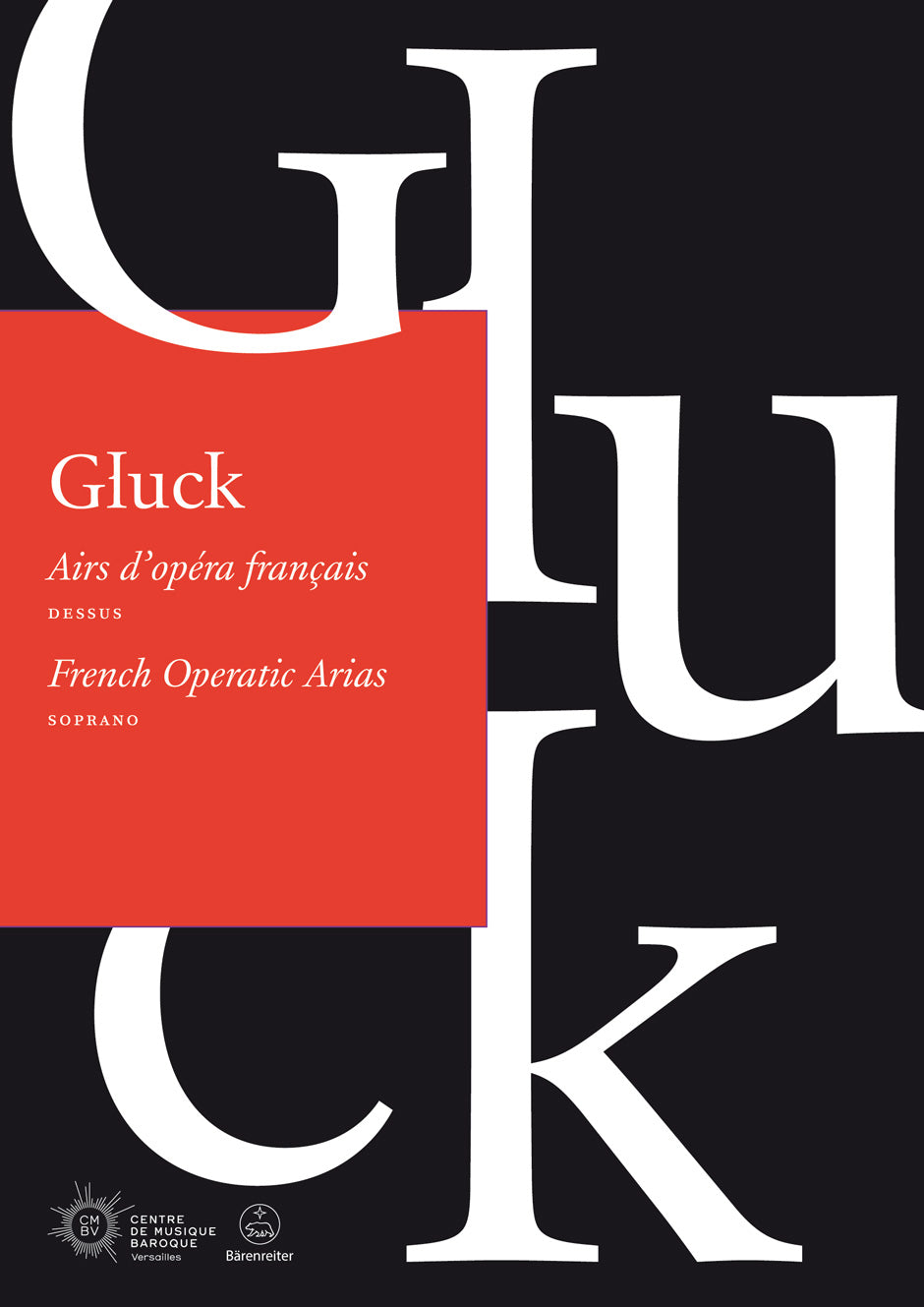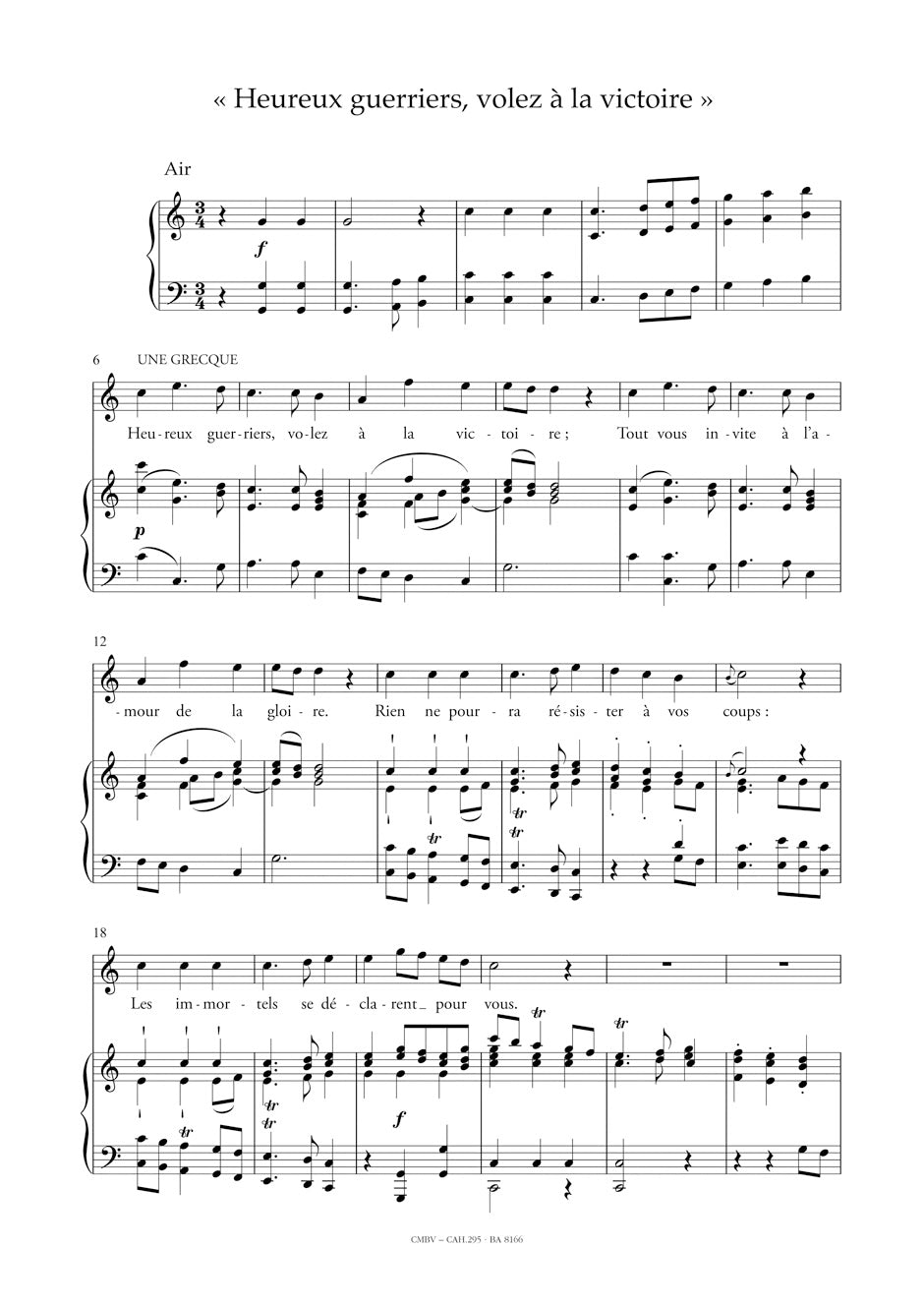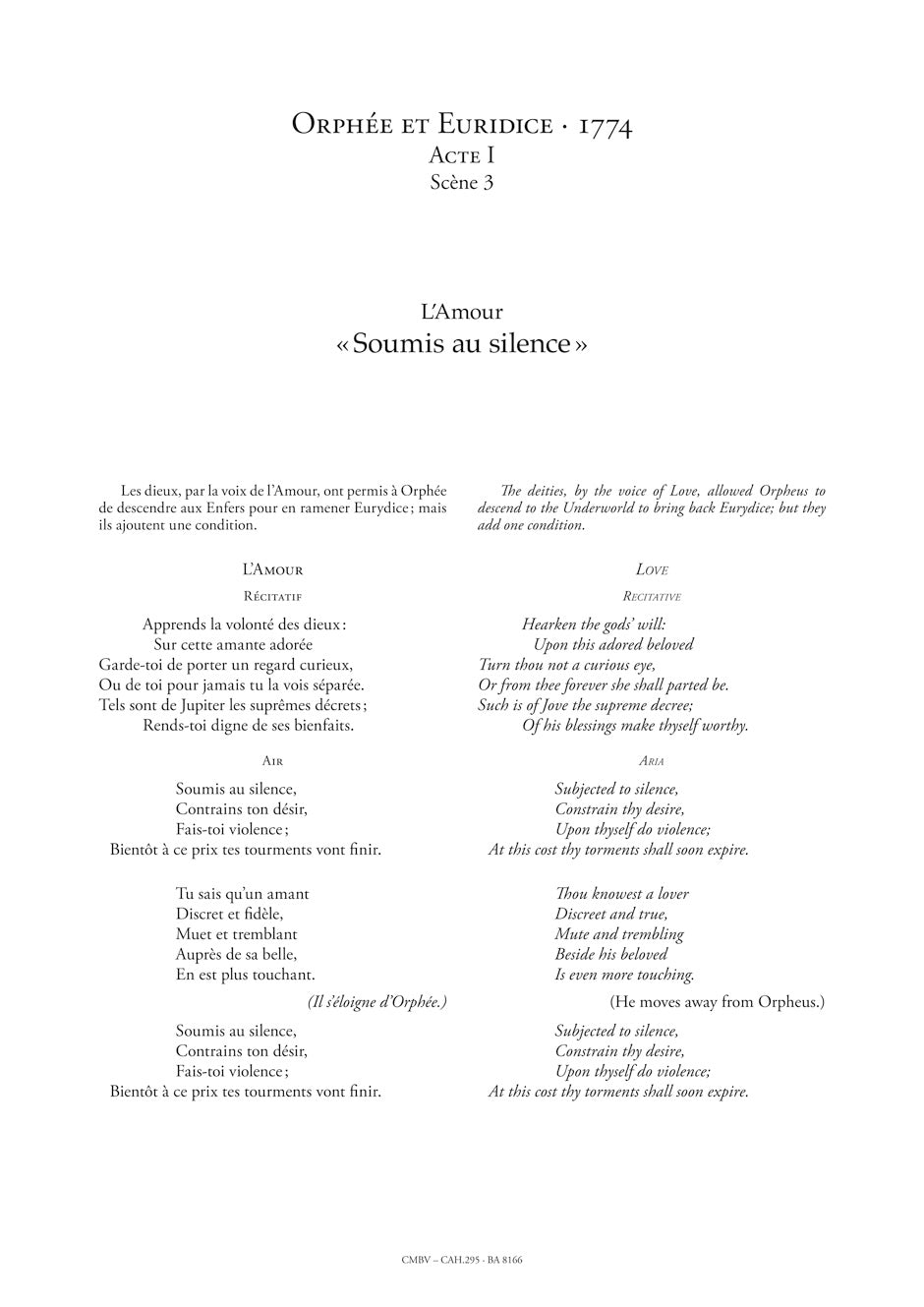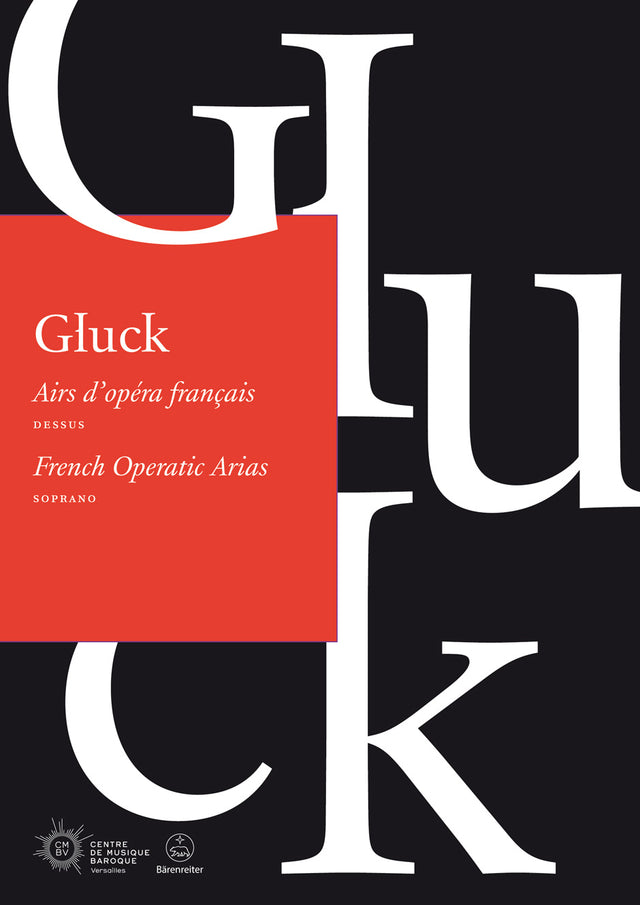Gluck: French Operatic Arias
Expected to ship in about a week.
- Composer: Christoph Willibald Gluck (1714-1787)
- Editor: Benoît Dratwicki
- Format: Vocal Score
- Instrumentation (this edition): Piano Reduction, Soprano
- Originally for: Opera
- Work Language: French
- ISMN:
- Size: 8.3 x 11.7 inches
- Pages: 148
- Urtext / Critical Edition
Description
This edition contains French operatic arias for soprano from the works which opera reformer Christoph Willibald Gluck composed on commission for the Paris Opera.
These include:
- Iphigénie en Aulide
- Cythère assiégée
- L'Arbre enchanté
- Écho et Narcisse
About the series:
In collaboration with the Centre de musique baroque de Versailles (CMBV) all arias from Christoph Willibald Gluck's French operas will be published for the first time in a collection of four volumes, ordered by voice type. With their wide variety of arias and informative texts these volumes constitute a valuable resource of works by one of the preeminent composers of the 18th century for singing lessons, auditions and recitals. In addition to the bilingual Foreword (Fr/Eng), the informative text section covers, for each aria, a brief dramaturgical placement into the context of the respective plot as well as a literal English translation.
Works:
- "Heureux guerriers, volez a la victoire from Iphigénie en Aulide, Wq. 40
- "Heureux guerriers, volez à la victoire" from Iphigénie en Aulide, Wq. 40
- "Si les doux accords de ta lyre" from Orphée et Eurydice (French Version), Wq. 41
- "Soumis au silence" from Orphée et Eurydice (French Version), Wq. 41
- "Si l'amour était un crime" from L'arbre enchanté (1775 Version) (1775)
- "Pour me plaire" from L'arbre enchanté (1775 Version) (1775)
- "Que l'objet qui m'engage" from L'arbre enchanté (1775 Version) (1775)
- "Ah! quel bonheur d'aimer" from Cythère Assiégée, Wq. 26
- "La barbare" from Cythère Assiégée, Wq. 26
- "Dieu puissant! embrase de ta flamme" from Cythère Assiégée, Wq. 26
- "Quelle audace, soldats" from Cythère Assiégée, Wq. 26
- "Mon coeur se plaît au bruit des armes" from Cythère Assiégée, Wq. 26
- "Nymphes, chantez victoire" from Cythère Assiégée, Wq. 26
- "L'aimable paix règne en ces asiles" from Cythère Assiégée, Wq. 26
- "On s'étonnerait moins que la saison nouvelle" from Armide, Wq. 45
- "Rien dans la nature" from Écho et Narcisse (1779)
- "Amusez, sachez plaire" from Écho et Narcisse (1779)
- "Peut-être d'un injuste effroi" from Écho et Narcisse (1779)
- "Vous différez nos jeux" from Écho et Narcisse (1779)
Publishers use a lot of words to describe what they sell, and we know it can be confusing. We've tried to be as clear as possible to make sure you get exactly what you are looking for. Below are descriptions of the terms that we use to describe the various formats that music often comes in.
Choral Score
A score for vocalists that only contains the vocal lines. The instrumental parts are not there for reference. Generally, cheaper than a vocal score and requires multiple copies for purchase.
Facsimile
Reproductions of the original hand-written scores from the composer.
Full Score
For ensemble music, this indicates that the edition contains all parts on a single system (there are not separate parts for each player). In larger ensembles, this is for the conductor.
Hardcover
Hardbound. Generally either linen-covered or half-leather.
Orchestral Parts
Similar to a wind set, this is a collection of parts. In the case of strings, the numbers listed are the number of copies included, though generally these are available individually (often with minimum quantities required).
Paperback
When publishers offer multiple bindings (e.g. hardcover) or study scores, this is the "standard" version. If you're planning to play the music, this is probably what you want.
Performance / Playing Score
A score of the music containing all parts on one system, intended for players to share. There are not separate parts for each player.
Set of Parts
For ensemble music, this indicates that there are separate individual parts for each player.
Solo Part with Piano Reduction
For solo pieces with orchestra, this is a version that contains a piano reduction of the orchestra parts. For piano pieces, two copies are typically needed for performance.
Study Score
A small (think choral size) copy of the complete score meant for studying, and not playing. They make great add-ons when learning concertos and small chamber works.
Vocal Score
A score prepared for vocalists that includes the piano/organ part or a reduction of the instrumental parts.
Wind Set
For orchestral music, this is a collection of wind and percussion parts. The specific quantities of each instrument are notated.
With Audio
In addition to the printed music, the edition contains recordings of the pieces. This may be an included CD, or access to files on the internet.
With / Without Fingering (Markings)
Some publishers prepare two copies - a pure Urtext edition that includes no fingering (or bowing) suggestions and a lightly edited version that includes a minimal number of editorial markings.





